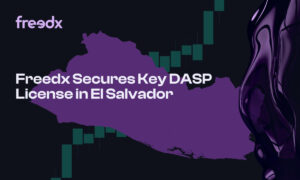El Salvador is known for many things, such as its Holocene volcanoes and abundant coffee production, but few things have put the country on the map like one of its boldest financial moves did. More recently, El Salvador grabbed all the headlines in 2021, when it became the first country to adopt Bitcoin as legal tender, a move led by crypto-friendly president Nayib Bukele. At that time, the leader explained that this shift would endorse financial inclusion, streamline remittance services, and increase private investments, with a focus on capital gained for initiatives associated with new technologies.
As of May 2025, thanks to Bitcoin’s trading above $102,000, El Salvador’s Bitcoin holdings are valued at approximately $644MN—a figure reflecting an unrealized profit of over $350MN. This surge isn’t just a financial milestone but also a turning point in the country’s broader economic narrative. It represents a 124% gain and sparks second thoughts in some of those who were once strongly condemning the government’s move.
For those monitoring the crypto news today, El Salvador’s approach serves as a real-world case study of a government that makes the most of the newest decentralized technology. Other governments can examine El Salvador’s goals and results and draw lessons in terms of innovation and caution. Panama, for instance, has been taking notes for a while.
Photo source: https://unsplash.com/photos/gold-and-silver-round-coins-4KJJezDyo3M
El Salvador’s long-term commitment to Bitcoin
El Salvador’s Bitcoin experiment began in September 2021, when President Bukele and the government’s legislative branch passed into law Bitcoin’s recognition as legal currency, alongside the U.S. dollar. This made El Salvador the first country to do so worldwide, and ever since, the government has pursued a consistent and public strategy of buying Bitcoin regularly.
In 2022, Bukele announced the government would be buying one Bitcoin per day for the national treasury. This commitment has been made in an attempt to accumulate value and ensure the government’s consideration of the long-term viability of digital assets. This unceasing accumulation, combined with larger past purchases made during Bitcoin price dips, brought the country’s total reserves to around 6,181BTC as of May 2025.
The Bitcoin rally spanning the end of 2023 and the beginning of 2024 was fueled by factors like macroeconomic events, institutional interest, and the long-awaited approval of Bitcoin exchange-traded funds in the U.S. All these things combined helped El Salvador’s crypto strategy yield positive results. Starting with an initial $28MN total investment, the country now has an asset that has more than doubled in value on paper.
Bitcoin as a supreme asset
Thanks to its current possessions, El Salvador is the sixth-largest sovereign BTC holder, following titans like the U.S., U.K., and China, all of which have gathered BTC through seizures, mining, or direct purchases.
El Salvador’s case stands out in that it’s the only nation among the top holders to actively pursue Bitcoin as part of its economic policy. While other countries approach Bitcoin largely as a seized or speculative asset, El Salvador has integrated it into its national vision for economic transformation. This feat improves the country’s visibility within the crypto space, and, as anticipated, draws both admiration and skepticism alike from the international financial world.
The position’s domestic impact
The Salvadoran government has labeled Bitcoin a tool for financial inclusion, investment attraction, and innovation. Among the main goals was to provide easier and cheaper remittance services to the Salvadoran diaspora, which sends billions of dollars home yearly. Years after Bitcoin’s legalization, the government still exerts efforts to help unbanked citizens join the digital economy.
However, public adoption has largely been limited and disproportionate. Surveys and reports suggest that usage rates sank after citizens installed the government’s app to receive fractions of Bitcoin worth $30 and ended up spending the money. Most of them used the funds for regular purchases like food, as well as bill payments. Fast forward to today, many prefer the USD’s stability and familiarity over the volatility of digital assets, whose value fluctuates intensely. The tech infrastructure, internet network, and digital knowledge needed to access all the benefits of crypto adoption remain barriers for many. Therefore, while Bitcoin’s role in the country’s macroeconomic strategy rises, it’s yet to become a significant force in everyday commerce.
International scrutiny and the IMF
International institutions are constantly evaluating El Salvador’s Bitcoin strategy. The International Monetary Fund (IMF), for instance, has publicly criticized the government’s move, in part due to the risks of currency volatility, potential money laundering, and financial instability. The institution has urged the Salvadoran government to restrict the public sector’s exposure to crypto. The government has agreed to send its BTC management to a different entity under statutory scrutiny – the Bitcoin Office – to decrease the central bank’s exposure to crypto’s volatility while permitting the established investment strategy to continue.
This solution meets the demands of some of the IMF’s reps without changing the government’s crypto ambitions entirely. However, it also highlights the tightrope El Salvador must walk: promoting innovation while maintaining international partnerships and securing funding.
Bitcoin’s role in the national economy
El Salvador has made it clear that investing in Bitcoin is done on the long term, treating it more like a strategic reserve asset instead of a speculative investment. Otherwise, the government could sell some BTC to fund other economic areas, like infrastructure initiatives, since Bitcoin has been trading in the green lately.
This holding approach reflects Bitcoin’s growing status as a digital form of “gold”- a store of value rather than a simple currency. El Salvador still accepts Bitcoin as legal tender, but it is approaching its crypto stash more as a national asset than a payment tool.
The question remains whether the government will keep holding during the next downturn or whether it might decide that selling a portion of its holdings is a good move to support broader budgetary needs.
Endnote
Long-term success boils down to more than just market luck. For El Salvador to benefit from its crypto adoption effectively, it must build a resilient, inclusive digital economy, ensuring that Bitcoin benefits the broader population and not just the few wealthy citizens. The world is watching, and whether the government’s bold move results in a success story worth noticing remains to be seen.

































